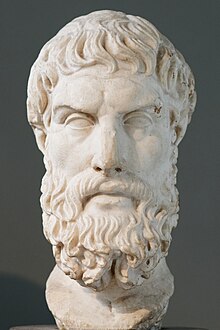Many successful business leaders and executives have cited the study of philosophy as beneficial to their careers, as it has helped them think creatively and critically about complex problems and communicate effectively with others.
What is Philosophy?
Philosophy is the study of fundamental questions about reality, existence, knowledge, values, reason, mind, and language.
It involves critical thinking and logical reasoning to examine and evaluate various beliefs and arguments and to develop and defend philosophical positions on a range of issues.
 |
| Philosophy |
Philosophers are concerned with a wide range of questions, including:
- What is the nature of reality?
- What is the nature of the self?
- What is the nature of knowledge and truth?
- What is the nature of morality and ethics?
- What is the nature of beauty and aesthetic value?
- What is the nature of language and its meaning?
- The pursuit of philosophical questions often leads to a greater understanding of the world and ourselves and can have practical applications in many areas of life.
Philosophy has been used for centuries to capture the essence of philosophical ideas and to inspire and motivate others to think deeply about life and the world.
Many famous philosophers throughout history have expressed their ideas through memorable and thought-provoking quotes that continue to be widely shared and discussed today.
One of the earliest recorded examples of a philosophy quote is from the ancient Greek philosopher Socrates, who is credited with saying,
The only true wisdom is in knowing you know nothing.
This quote highlights Socrates' scepticism about certain knowledge and his belief that wisdom comes from recognizing and acknowledging one's limitations.
Other well-known philosophy quotes include:
- "I think, therefore I am," from the French philosopher René Descartes, which expresses the idea that our own existence is the only thing that we can be certain of."
- "Happiness is not something ready-made. It comes from your own actions," from the Dalai Lama, which emphasizes the idea that happiness is not something that can be obtained externally, but rather is something that we must cultivate within ourselves through our actions and attitudes.
- "The unexamined life is not worth living," from Socrates, which suggests that it is important to reflect on and critically examine our own lives and beliefs in order to live a meaningful and fulfilling life.
The Root of Philosophy?
Philosophy has its origins in the ancient civilizations of the East and the West and has evolved and developed over the course of many centuries.
- In the Western tradition, philosophy is often traced back to the ancient Greeks, who made significant contributions to the development of philosophical thought.
The Greeks were known for their love of wisdom, and their philosophers sought to understand the nature of reality, knowledge, and the self through the use of reason and critical thinking.
Socrate
- In the Eastern tradition, philosophy has a similarly long history, with ancient Indian, Chinese, and Japanese philosophers making important contributions to the development of philosophical thought.
These philosophical traditions often focus on spiritual enlightenment, self-realization, and the cultivation of virtue and wisdom.
According to Indian Scripture:
These philosophical traditions have a long and rich history that stretches back thousands of years, and they have had a significant influence on the development of philosophy in the East and the West.
- Hindu philosophy is based on the sacred texts of Hinduism, such as the Vedas, the Upanishads, and the Bhagavad Gita.
It encompasses a wide range of philosophical schools and traditions, including Samkhya, Yoga, Vedanta, and Mimamsa.
Hindu philosophy is concerned with understanding the nature of ultimate reality and the self, and with discovering the path to liberation and self-realization.
- Buddhist philosophy is based on the teachings of the Buddha and the Buddhist scriptures, known as the Tripitaka.
It emphasizes the Four Noble Truths, which hold that suffering is an inherent part of life and that it can be overcome through the Eightfold Path, which includes ethical conduct, mental discipline, and wisdom.
Buddhist philosophy also teaches the concept of "dependent origination," which holds that all phenomena arise in dependence upon other factors and that there is no permanent self or soul.
- Jain philosophy is based on the teachings of the Jain Tirthankaras and the Jain scriptures.
It emphasizes non-violence, non-attachment, and the concept of "ahimsa," or non-harming.
Jain philosophy teaches that all living beings have an eternal soul and that the goal of life is to achieve liberation from the cycle of reincarnation through spiritual purification and self-control.
Study of Philosophy
The term "philosophy" in this context refers to the pursuit of knowledge and understanding through critical thinking and logical reasoning.
A PhD degree is a type of advanced academic degree that is typically awarded to students who have completed a program of study and research in a specific field of study, such as philosophy, science, or the arts.
In the modern context, a PhD degree is typically seen as a mark of advanced expertise and research ability in a particular subject area.
The process of earning a PhD degree is often very challenging and time-consuming and requires a high level of dedication and commitment.
However, it can also be an enriching and fulfilling experience and can open up many career opportunities for those who hold a PhD degree.
Some may feel that it is a difficult or abstract subject that is not directly applicable to their career goals.
Others may be intimidated by the idea of engaging in philosophical discussions and debates or may feel that they lack the necessary background or knowledge to succeed in a philosophy program.
They may be interested in exploring the fundamental questions of reality, existence, and knowledge, and in developing their critical thinking and logical reasoning skills.
11 Reasons How the Human Revolution used Philosophy:
- Philosophy has played a central role in shaping human thought and understanding throughout history.
- It has helped people to clarify and articulate their beliefs and values, and to think critically about the world around them.
- Philosophy has contributed to the development of scientific and mathematical methods and has helped to shape our understanding of the natural world.
- It has influenced the development of political and social systems and has shaped our understanding of justice, democracy, and human rights.
- Philosophy has played a central role in the development of artistic and literary movements and has influenced the way we think about aesthetics and beauty.
- It has helped to shape our understanding of human psychology and emotion and has influenced the development of various approaches to therapy and mental health.
- Philosophy has contributed to our understanding of the nature of language and meaning and has shaped the way we communicate and express ourselves.
- It has influenced the development of various religious and spiritual traditions and has helped people to think deeply about the nature of ultimate reality and the meaning of life.
- Philosophy has played a central role in the development of moral and ethical principles and has shaped our understanding of right and wrong.
- It has influenced the way we think about education and learning and has shaped our understanding of the role of critical thinking and reasoning in the pursuit of knowledge.
- Finally, philosophy has helped people to think deeply about their own lives and experiences, and has encouraged them to reflect on the meaning and purpose of their existence.
8 Famous Indian Philosophical Ideas:
- "You have control over action only, never over its fruits. Act for the action's sake. And do not be attached to inaction." - Bhagavad Gita
- "Be steadfast in yoga, O Arjuna. Perform your duty and abandon all attachments to success or failure. Such evenness of mind is called yoga." - Bhagavad Gita
- "The only way to do great work is to love what you do." - Buddha
- "Holding on to anger is like grasping a hot coal with the intent of throwing it at someone else; you are the one who gets burned." - Buddha
- "The mind is everything. What you think, you become." - Buddha
- "There is no path to happiness: happiness is the path." - Buddha
- "An eye for an eye only ends up making the whole world blind." - Mahatma Gandhi
- "Happiness is not something ready-made. It comes from your own actions." - Dalai Lama
Whether you are a professional philosopher or simply someone who enjoys thinking deeply about life and the world, there is no denying the enduring relevance and importance of philosophy in our lives.
Thank you for joining me on this journey of exploration and discovery. Until next time, keep thinking, keep questioning, and keep striving for wisdom and understanding.




0 Comments
Hey! Your Valuable Comments & Suggestions are Welcome :)